The Reform Party, formally the New Zealand Political Reform League, was New Zealand's second major political party, having been founded as a conservative response to the original Liberal Party. It was in government between 1912 and 1928, and later formed a coalition with the United Party, and then merged with United to form the modern National Party.

The 1949 New Zealand general election was a nationwide vote to determine the shape of the New Zealand Parliament's 29th term. It saw the governing Labour Party defeated by the opposition National Party. This marked the end of the 14-year First Labour government and the beginning of the First National government.

Joseph Gordon Coates served as the 21st prime minister of New Zealand from 1925 to 1928. He was the third successive Reform prime minister since 1912.
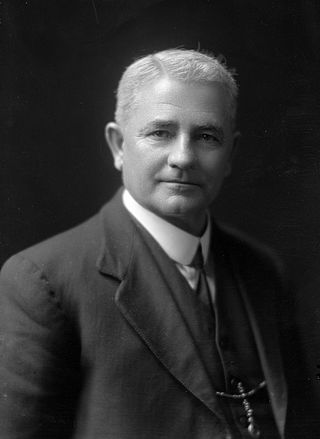
Henry Edmund Holland was an Australian-born newspaper owner, politician and unionist who relocated to New Zealand. He was the second leader of the New Zealand Labour Party.

The 1911 New Zealand general election was held on Thursday, 7 and 14 December in the general electorates, and on Tuesday, 19 December in the Māori electorates to elect a total of 80 MPs to the 18th session of the New Zealand Parliament. A total number of 590,042 (83.5%) voters turned out to vote. In two seats there was only one candidate.

The 1914 New Zealand general election was held on 10 December to elect a total of 80 MPs to the 19th session of the New Zealand Parliament. The Maori vote was held on 11 December. A total number of 616,043 voters were registered, of which 84.7% voters turned out to vote.

The 1922 New Zealand general election was held on Monday, 6 December in the Māori electorates, and on Tuesday, 7 December in the general electorates to elect a total of 80 MPs to the 21st session of the New Zealand Parliament. A total number of 700,111 (87.7%) voters turned out to vote. In one seat there was only one candidate.

The 1925 New Zealand general election was held 4 November to elect a total of 80 MPs to the 22nd session of the New Zealand Parliament.
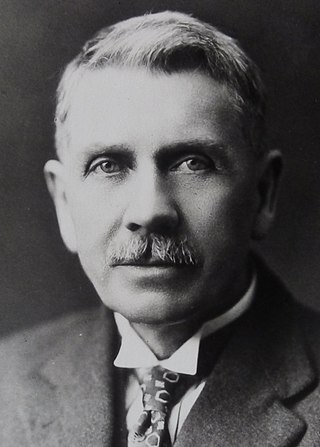
William Andrew Veitch was a New Zealand politician. He began his career in the labour movement, but became a strong opponent of more militant socialism, and rejected the radical views held by many of his colleagues.

The 19th New Zealand Parliament was a term of the New Zealand Parliament. It opened on 24 June 1915, following the 1914 election. It was dissolved on 27 November 1919 in preparation for 1919 election.
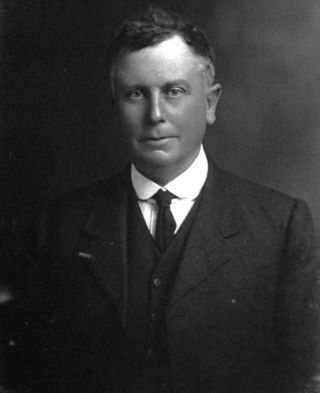
Alfred Humphrey Hindmarsh was a New Zealand politician, lawyer, and unionist. He died in the 1918 influenza epidemic. He served as the first leader of the modern New Zealand Labour Party.

The 1926 Eden by-election was a by-election for the Eden electorate during the 22nd New Zealand Parliament. The seat became vacant after the appointment of the sitting member, James Parr of the Reform Party as High Commissioner to London. Parr resigned on 26 March. Labour won the by-election and became the official opposition in Parliament.
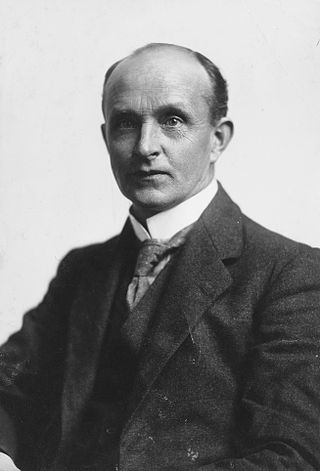
James (Jimmy) McCombs was a New Zealand Member of Parliament for Lyttelton.

Robert Fletcher was a New Zealand politician of the Liberal Party.

The 1945 Dunedin North by-election was a by-election held during the 27th New Zealand Parliament in the Dunedin electorate of Dunedin North. The by-election occurred following the death of MP James W. Munro and was won by Robert Walls.
The Wellington Central by-election of 1918 was a by-election held in the Wellington Central electorate during the 19th New Zealand Parliament, on 3 October 1918. It was caused by the death of incumbent MP Robert Fletcher of the Liberal Party and was won by Peter Fraser with a majority of 1,624.
The 1915 Bay of Islands by-election was a by-election held on 8 June 1915 during the 19th New Zealand Parliament in the Northland electorate of Bay of Islands. The by-election came about because Vernon Reed's win in the 1914 general election was declared void by an electoral court. The seat was won by William Stewart of the Reform Party. Reed, who was also of the Reform Party, was barred by the court from standing for election for 12 months.
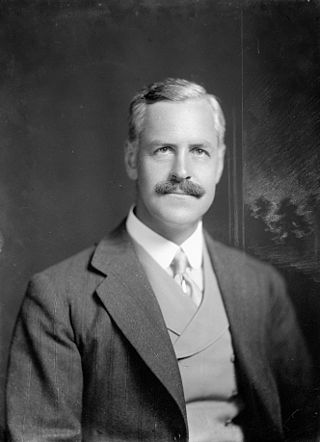
The 1917 Bay of Islands by-election was a by-election held on 19 March 1917 during the 19th New Zealand Parliament in the Northland electorate of Bay of Islands. The by-election came about because Vernon Reed's win in the 1914 general election had been declared void by an electoral court, and Reed barred from standing for a year. The seat was won by William Stewart, Reed's Reform Party colleague, in the resulting 1915 by-election. When Reed became eligible again, Stewart resigned and Reed won the 1917 by-election unopposed.
The Grey by-election of 1918 was a by-election during the 18th New Zealand Parliament. It was held on the 29 May 1918. The seat had become vacant due to the imprisonment of sitting member Paddy Webb who was jailed on the issue of his vocal opposition to conscription which had been enforced by Prime Minister William Massey. The by-election was won by the Labour candidate Harry Holland.

The Raglan by-election of 1927 was a by-election held in the Raglan electorate during the 22nd New Zealand Parliament, on 29 September 1927. It was caused by the death of incumbent MP Richard Bollard of the Reform Party. Despite being a local contest it quickly became a national contest in miniature due to growing discontent with the Reform Government.















